30 Best Teas for Stress and Anxiety
We all have to deal with stress at some point in life. Chronic stress might lead to many health issues including headaches, digestive problems, insomnia and weak immune system leading to more serious problems. If you experienced chronic stress and anxiety, you know that there is no one-fits-all solution. High levels of constant stress sometimes make it necessary to seek alternative solutions to improve the quality of life. Herbs and teas might prove to be a powerful companion to deal with those issues. For centuries herbs, flowers and fruits have been used to treat stress and anxiety. Of course, the best results will always include changing the lifestyle, including breathing techniques and changing the diet. We made a list of 30 top teas to help with stress and reduce anxiety.
Disclaimer: Most of the herbs on our list are likely safe in low doses, especially those that you can grow in your own garden. However, before deciding to treat yourself with herbal teas, always consult your doctor. Some herbs may interact with certain medicine and cause serious side-effects.
What herbal teas are good for stress and anxiety?
Valerian root, St. John's wort, Kava kava, and ginkgo are the most common herbal remedies for treating anxiety, reducing stress and supporting the nervous system. With the exception of Kava kava, these plants are easily available and affordable home remedies. Because of their potency, they may offer a solution for even chronic conditions.
-
Valerian root tea (Valeriana officinalis)
-
St. John’s wort (Hypericum perforatum)
Teas with St. John’s wort? Energized Herbal, After Noon Delight
-
Kava Kava (Piper methysticum)
-
Ginkgo (Ginkgo biloba)
Teas with Ginkgo: Clari’tea
Anti Anxiety Herbs (Adaptogenic)
Adaptogens are plants with special ability to reduce stress naturally. Traditional medicine has been using them for centuries, often as a panacea for all stress-related problems. With stress becoming a huge problem, adaptogens are finally catching more attention from scientists. Studies show that these plants have "neuroprotective, anti-fatigue, anti-depressive, anxiolytic, nootropic and CNS stimulating activity.” They are usually available as powders or dry leaves.
-
Ashwagandha (Withania somnifera)
Teas with ashwagandha: Vedic Healer
-
Siberian ginseng (Eleutherococcus senticosus)
Teas with Siberian ginseng: Vanilla Mint Sencha
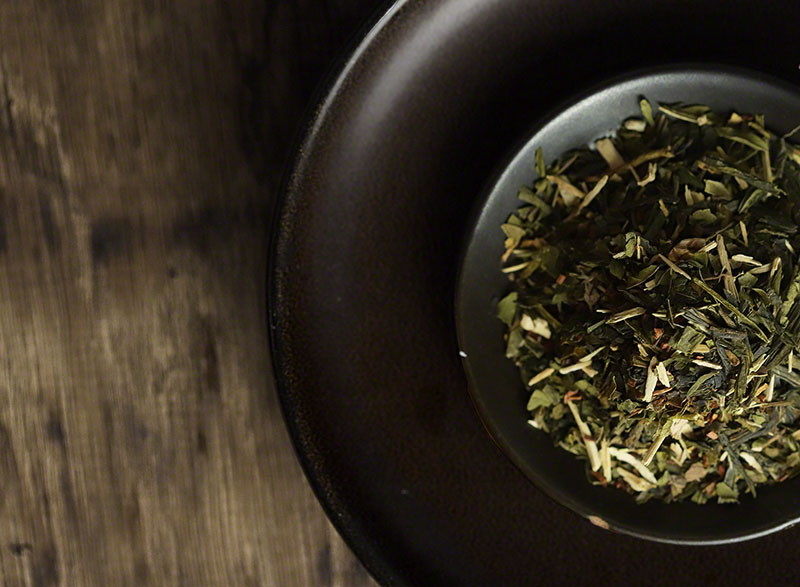
Vanilla Mint Sencha
-
Jiaogulan (Gynostemma pentaphyllum)
-
Licorice Root (Glycyrrhiza glabra)
Teas with licorice: Wisdom’s Chai, Tulsi Chai, Seven
-
Holy Basil Tea (Ocimum tenuiflorum)
Teas with Holy Basil: Tulsi Chai, Shanti Herbal, Pitta Ayurvedic Herbal
-
Golden Root (Rhodiola Rosea)
Natural Antidepressants and Anxiolytics in Chinese Medicine
Medicinal herbs are an important part of Traditional Chinese Medicine for over 2500 years. Together with acupuncture and massage Chinese medicine has a personalized approach towards each and every person. Therefore, the number of herbs is also wide and their use should be administered by a specialist.
-
Five-flavor fruit (Schisandra chinensis)
Teas with Five-flavor fruit: Northern Garden
-
Motherwort (Leonurus cardiaca)
-
Hawthorn (Crataegus)
Teas with Hawthorne: Northern Garden
-
Chinese Jujube (Ziziphus jujube)
-
Chrysanthemum (Chrysanthemum indicum)
Teas with Chrysanthemum: Green Dragon, St. Andrew’s Blend, Decaf Irish Cream
Treating Depression, Stress, and Anxiety with Ayurveda
Ayurveda is a 5000 years old traditional Indian “medicine” that uses herbs and spices as a part of natural healing. While western medicine tries to remove the symptoms of anxiety and stress, Ayurveda, similar to Chinese Traditional Medicine, seeks a way to remove the problem at the source.
-
Lemongrass (Cymbopogon)
Teas with lemongrass: Summer Splash, African Summer
-
Safflower (Carthamus tinctorius)
Teas with safflower: Simple Strawberry Green, Cherry Green, Simple Earl Grey, Prickly Pear Green
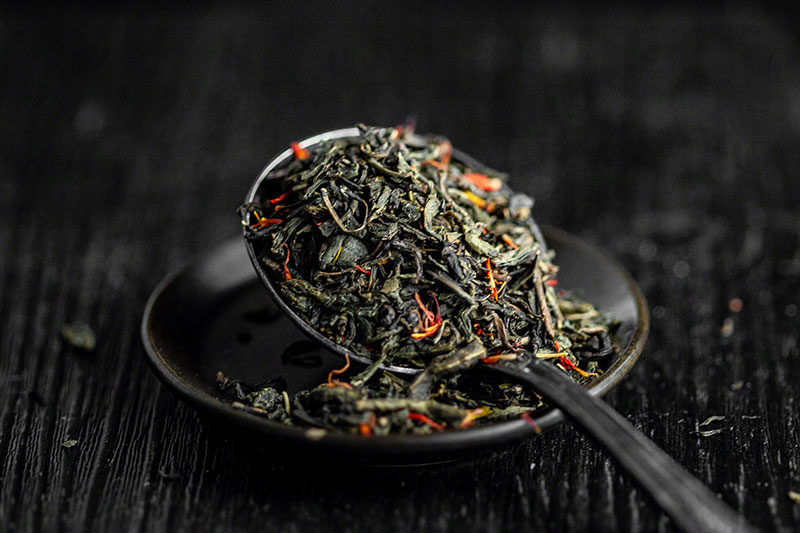
Simple Strawberry Green
-
Gotu Kola (Centella asiatica)
Teas with Gotu Kola: Clari’tea
Garden herbs you can grow yourself for stress relief tea
There are numerous herbs you can grow on your own in a garden or a pot and safely use for making tea with both raw and dry form. These herbs may not have a strong anxiolytic and anti-stress effect but are very popular in western traditional medicine for their soothing and calming properties.
-
Peppermint Tea (Mentha × piperita)
Teas with peppermint: Evening Herbal, Herbal Garden
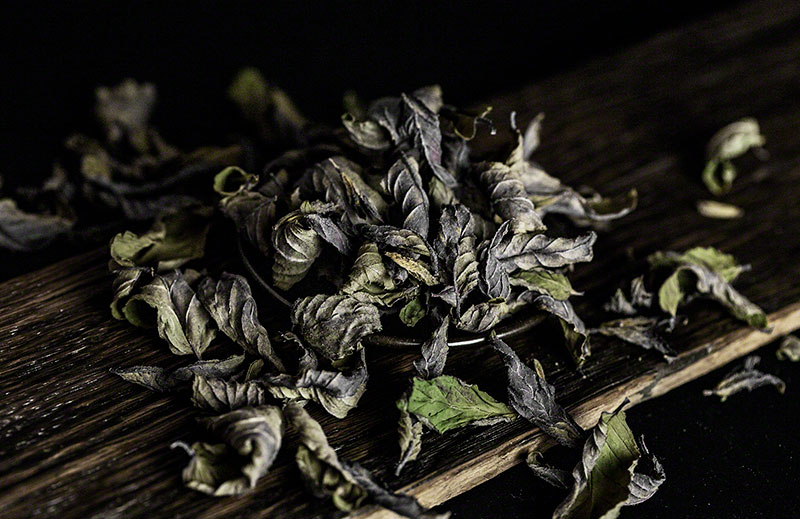
Dried Peppermint Leaves
-
Chamomile Tea (Chamaemelum nobile)
Teas with chamomile: Mi-cha, Berry Chamomile, Honey Ginger Chamomile
-
Rosemary (Rosmarinus officinalis)
Teas with rosemary: Rose Grey, Northern Garden
-
Lemon Balm (Melissa officinalis)
-
Sage (Salvia officinalis)
Teas with sage: Clari’tea
Reducing stress and anxiety with flowers
Besides many herbs, there are dozens of flowers that can also help reduce anxiety and stress. Some of them are more common as essential oils, but you can infuse all of them in hot water and get a calming cup of tea.
-
Rose (Rosa)
Teas with rose: Red Rose, Rose Grey
-
Jasmine (Jasminum sambac)
Teas with jasmine: Jasmine Green, Purple Jasmine, Simple Vanilla Black
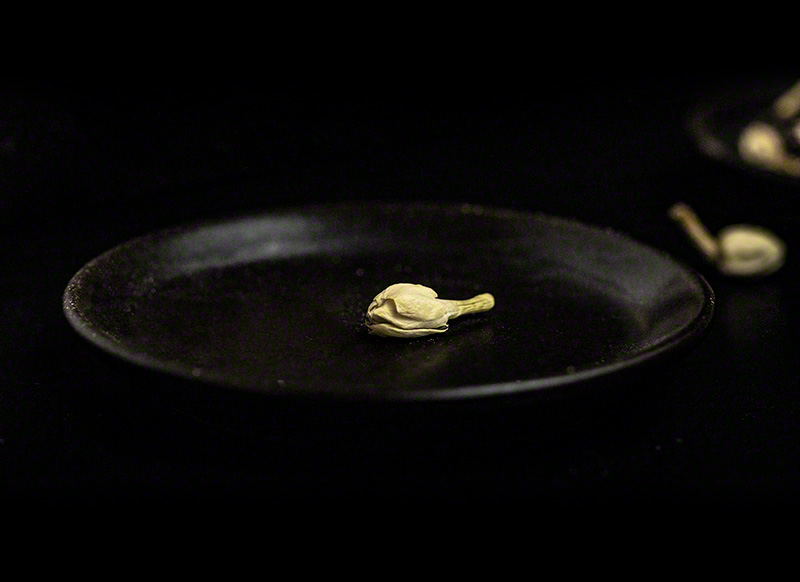
Jasmine flower
-
Lavender Tea (Lavandula)
Teas with lavender: Lavender Raspberry Herbal, Garden of Mariposa
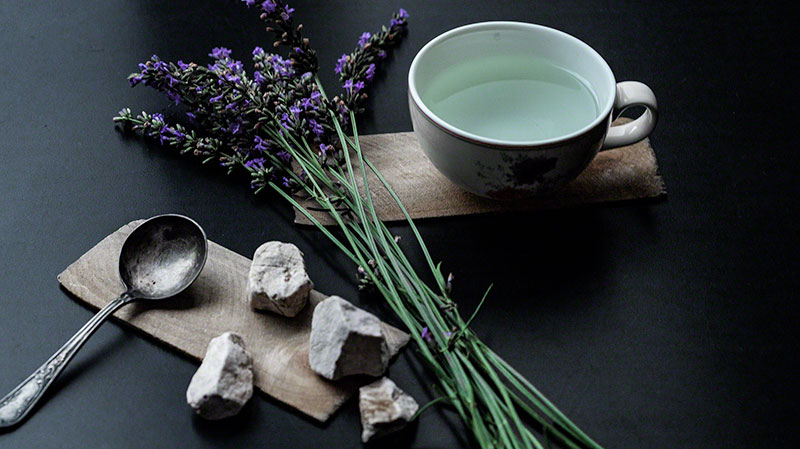
Lavender Tea
-
Common Marigold (Calendula officinalis)
Teas with marigold: Evening Jewel, African Purple
-
Linden flower tea (Tilia)
Teas with linden flower: Kimberly Herbal
-
Peony (Ranunculaceae)
-
Passion Flower (Passiflora incarnata)
References:
[1] https://www.ncbi.nlm.nih.gov/pubmed/26366471 [2] https://www.medicalnewstoday.com/articles/321969.php [3] https://www.ncbi.nlm.nih.gov/pubmed/26004733 [4] https://www.ncbi.nlm.nih.gov/pmc/articles/PMC3359802/ [5] https://www.ncbi.nlm.nih.gov/pmc/articles/PMC2995283/ [6] https://neoscriber.org/cdn/dl/814351d4-7cd2-11e7-a12a-73a273e408f9 [7] http://cms.herbalgram.org/herbclip/305/review44675.html?ts=1563050707&signature=874a70ae1df757d16bb9daa08820f853 [8] https://www.medicalnewstoday.com/articles/324478.php [9] https://www.ncbi.nlm.nih.gov/pmc/articles/PMC6007527/ [10] http://impactfactor.org/PDF/IJPPR/9/IJPPR,Vol9,Issue1,Article22.pdf [11] https://www.ncbi.nlm.nih.gov/pubmed/22196583 [12] https://www.ncbi.nlm.nih.gov/pubmed/11679026 [13] https://www.ncbi.nlm.nih.gov/pubmed/23042598 [¸4] https://www.webmd.com/vitamins/ai/ingredientmono-126/motherwort [15] https://www.aafp.org/afp/2010/0215/p465.html [16] https://www.ncbi.nlm.nih.gov/pmc/articles/PMC5478819/ [17] https://www.ncbi.nlm.nih.gov/pmc/articles/PMC3762266/ [18] https://www.ncbi.nlm.nih.gov/pmc/articles/PMC3252722/ [19] https://www.ncbi.nlm.nih.gov/pmc/articles/PMC3573577/ [20] https://www.ncbi.nlm.nih.gov/pubmed/15207399 [21] https://www.ncbi.nlm.nih.gov/pmc/articles/PMC4570649/ [22] https://www.ncbi.nlm.nih.gov/pmc/articles/PMC5376420/ [23] https://www.ncbi.nlm.nih.gov/pmc/articles/PMC4296439/ [24] https://www.ncbi.nlm.nih.gov/pmc/articles/PMC6208354/ [25] https://www.ncbi.nlm.nih.gov/pmc/articles/PMC4630875/ [26] https://www.webmd.com/vitamins/ai/ingredientmono-333/ginkgo [27] https://nccih.nih.gov/health/stjohnswort/sjw-and-depression.htm#hed4 [28] https://www.aafp.org/afp/2003/0415/p1755.html
More from:
SLL


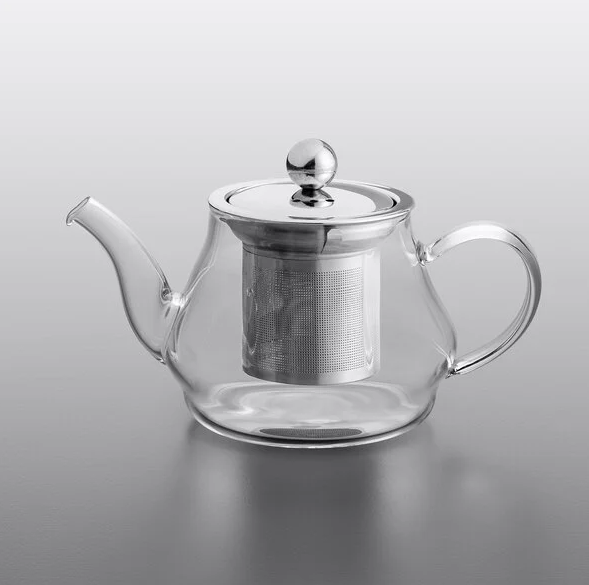
Leave a comment